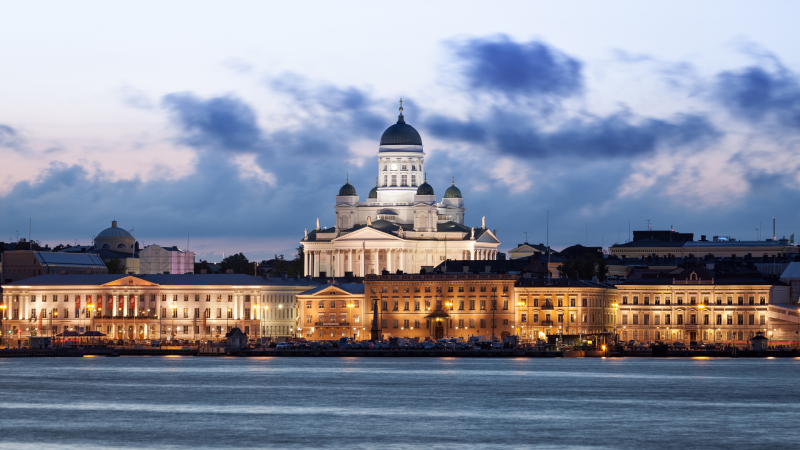Helsinki Hosts Economic Development Forum 2023 To Ignite Innovation, Skills, Entrepreneurship, And Sustainability Across European Cities

Categories :
The major global cities have become increasingly aware of the need to develop economic policies that promote sustainable economic development, kindle innovation, and foster inclusive growth worldwide. How do events like Eurocities Economic Development Forum 2023 tackle global challenges while enabling a fair, digital, and sustainable transformation of cities?
Cities are complex ecosystems, comprising a diverse range of stakeholders with competing needs and interests. Effective policy is essential to manage this complexity, create a cohesive vision for the city, and ensure the well-being of its citizens. A well-crafted policy can make a significant impact on various aspects of life, including economic growth, social welfare, and environmental sustainability.
However, creating an effective policy requires a comprehensive understanding of the complex factors that drive social, economic, and environmental issues. It, thus, needs global platforms like the Eurocities Economic Development Forum where representatives from government, institutions, public bodies, and information channels can create an accessible pathway that facilitates in the process of policy-making.
The impact of policies by major European Cities
European cities have been at the forefront of implementing policies and initiatives aimed at fostering sustainable growth and tackling global challenges. One key area of focus has been reducing carbon emissions and improving air quality. According to a report by the European Environment Agency, the total greenhouse gas emissions from the EU-27 decreased by 23.2% between 1990 and 2019, with emissions from transport, a key area of focus for many European cities, decreasing by 1.7% in 2019 alone.
Cities such as Amsterdam, Paris, Berlin, Barcelona, and Copenhagen have implemented a variety of policies and initiatives to achieve their sustainability goals. Amsterdam has set a goal of becoming carbon neutral by 2050 and has already reduced emissions by 20% since 2012. The city has invested in sustainable transportation by expanding its network of bike lanes and investing in electric buses. Paris has implemented a ban on diesel cars that are more than five years old to improve air quality, while Berlin has implemented a policy that requires new buildings to have green roofs to help reduce the urban heat island effect.
Copenhagen has set a goal of becoming a zero-waste city by 2025 and has already made significant progress towards this goal. The city has implemented a number of policies aimed at reducing waste and promoting sustainable waste management, such as a program that encourages residents to separate and recycle their household waste and a waste-to-energy plant that generates electricity from waste. Barcelona has implemented a policy of creating "superblocks," which are areas of the city where cars are restricted and public space is reclaimed for pedestrians and cyclists. These policies and initiatives have not only helped reduce carbon emissions and improve air quality, but have also resulted in economic benefits, such as increased tourism and job creation in green industries.
These policies have had a positive impact on the global environment, with reduced carbon emissions and improved air quality. They have also had a positive social impact, with increased investment in public services and improved living standards for many people.
Eurocities Economic Development Forum
The 2023 Eurocities Economic Development Forum is being organised in Helsinki, Finland on 22–24 March. The forum aims to explore how cities across Europe are boosting entrepreneurship, skills, and innovation to create a socially just transition to a green future.
Eurocities is a network of over 140 large European cities from 39 countries that promotes the economic and social development of its member cities. It supervises interests at the level of the EU, generates information about the EU’s funding application rounds and EU legislation, and functions as a peer learning platform for its member cities. Helsinki has been a member of the Eurocities network since 1994 and the chair of the Economic Development Forum from November 2020 until June 2023.
The Economic Development Forum 2023 will bring together representatives from many European member cities, including France, Germany, Italy and Spain to share their experiences in using local economic policies to create a more sustainable future. It will also feature speakers from the European Commission, the OECD, the European Business Network, and local businesses.
Member cities of the forum would examine the potential effects of European proposals on financing for local infrastructure and will engage directly with EU policymakers to express their opinions. They will also focus on the global climate crisis and work in collaboration with businesses and universities. Cities will aim to streamline environmental concerns within urban policies on small and medium enterprises through the EU platform for sustainable financing.
The forum will develop strategies to future-proof the workforce by recognising the significant role that people and skills that play a crucial role in creating sustainable local economies. With an emphasis on upskilling, cities will prepare their workforces to adapt to future changes in the job market. These strategies aim to ensure that cities are equipped to meet the challenges of the future, and that their economies remain sustainable and resilient.
The Eurocities Economic Development Forum is an opportunity for cities to explore different strategies and approaches to work together and develop effective and equitable solutions for a sustainable future.
Citiesabc was created by a team of global industry leaders, academics and experts to create new solutions, resources, rankings and connections for the world’s top cities and populations.







